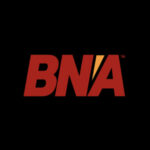Breaking News
Blistering Midwest Heatwave to Hit Chicago and Rest of the Region: Residents Cautioned
The Midwest is bracing for the most intense heat wave of the summer, with Chicago at the epicenter. The National Weather Service (NWS) has issued warnings for “extreme” heat risk throughout the region, including Des Moines, Iowa, and the Twin Cities. This “Midwest heatwave” is expected to shatter historical temperature records as it moves from the Southern Plains, now focusing on the Midwest before eventually shifting southeast.
Residents Warned of Extreme Midwest Heatwave
According to the NWS, this late-August Midwest heatwave is bringing unprecedented temperatures, with heat indices soaring between 105°F and 115°F. Such conditions are hazardous even for healthy individuals, particularly those working or exercising outdoors. The NWS emphasizes that the “extreme” heat risk level applies to “anyone without effective cooling and/or adequate hydration,” with potentially severe impacts on health systems, heat-sensitive industries, and infrastructure.
As the heatwave progresses, at least 11 states are projected to experience “major” heat risks, with Chicago forecasted to see high temperatures of 96°F on Monday and 98°F on Tuesday, around 20°F above the seasonal average. St. Louis is expected to endure even higher temperatures, with daily highs potentially exceeding 100°F until Friday.
Heatwave to Hit Schools and Cities
Public schools in Chicago are reopening just as this severe Midwest heatwave hits. With heat restrictions in place, the lack of air conditioning in some school districts is raising concerns. The NWS warns of “a dangerous late season heat wave Monday and especially Tuesday,” with overnight lows in Chicago staying in the upper 70s°F to 80°F, preventing much-needed relief from the heat. This ongoing exposure increases the risk of heat-related illnesses, especially for those without air conditioning.
The heatwave is also expected to extend its reach as a weak cold front from Canada pushes the core of the hot air mass south and east by Wednesday and Thursday. Cities from St. Louis to Pittsburgh, and even Washington, D.C., are forecasted to experience July-like temperatures and humidity levels.
No Record Breakers Here, But It’s Still Going to Sizzle Across the Midwest
This Midwest heatwave, driven by a powerful heat dome slowly migrating across regions, is not just a weather anomaly but a sign of broader climatic shifts. This dome has already shattered records across Texas and the Central Plains, with Abilene, Texas, hitting an all-time high of 113°F on August 21.
The bottom line: While this Midwest heatwave may not break records for duration, it is expected to tie or break numerous daily and potentially some monthly records. As the heat dome continues to move, cities across the Midwest and beyond must prepare for a dangerous and potentially deadly stretch of extreme weather.
Stay Safe By Staying Aware
With temperatures reaching dangerous levels, it's crucial for residents in the Midwest to take precautionary measures to stay safe during this intense heatwave. Here are some practical tips:
- Stay Hydrated: Drink plenty of water throughout the day, even if you don't feel thirsty. Avoid alcohol, caffeine, and sugary drinks, which can dehydrate you.
- Limit Outdoor Activities: If possible, avoid outdoor activities during peak heat hours (10 a.m. to 4 p.m.). If you must be outside, take frequent breaks in the shade or indoors and wear lightweight, loose-fitting clothing.
- Use Air Conditioning: Spend as much time as possible in air-conditioned environments. If you don't have air conditioning at home, consider visiting public places like shopping malls, libraries, or community centers.
- Check on Vulnerable Individuals: The elderly, young children, and those with pre-existing health conditions are particularly vulnerable to heat-related illnesses. Check on neighbors, friends, and family members who may need assistance.
- Never Leave Children or Pets in Vehicles: Temperatures inside a parked car can skyrocket in minutes, leading to fatal outcomes. Always check your vehicle before locking it.
- Stay Informed: Keep an eye on local weather reports and heat advisories. Follow guidance from local authorities and be aware of the signs of heat exhaustion and heat stroke, such as dizziness, nausea, and confusion.
This Midwest heatwave is not just a matter of discomfort; it's a serious health risk that demands careful attention and preparedness. By following these tips and staying informed, residents can protect themselves and their loved ones during this challenging time.
Have you experienced a heatwave before? Do you have any tips to share to help survive rising temperatures in your area?
